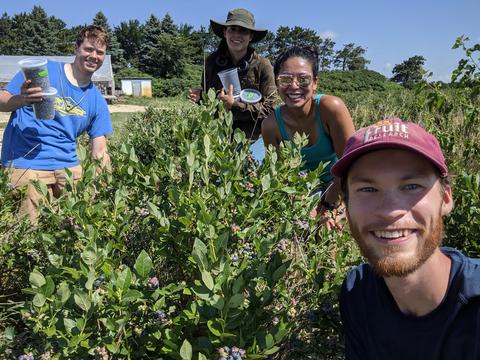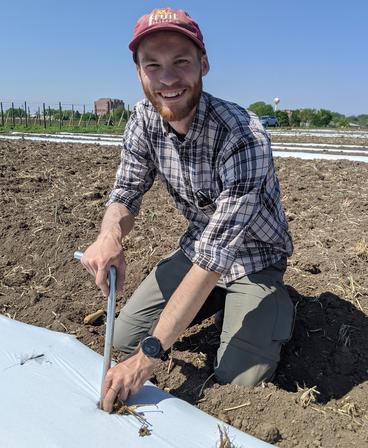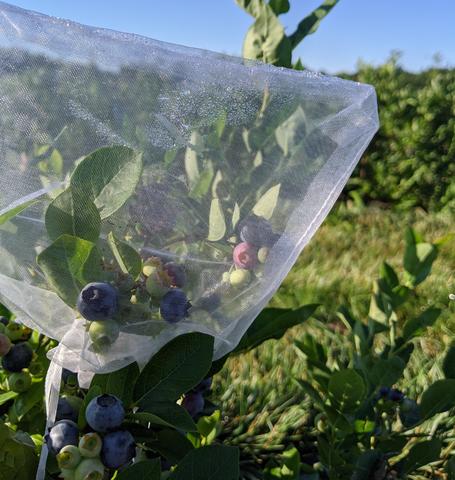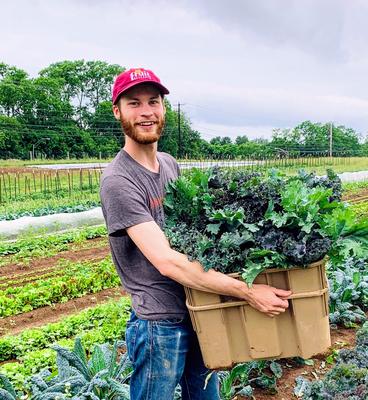Matthew is a PhD student studying the chemical ecology of spotted-wing drosophila (Drosophila suzukii) and whether aversive odorants could be used to protect fruit crops in an integrated pest management setting. Matthew’s love for plants and growing food began as a child helping in his parents’ garden. Since then, he has continued to learn about horticulture, entomology, botany, and ecology at Gustavus Adolphus College in St. Peter, MN where he graduated with a B.A. degree in biology in 2016. Afterwards, he worked as a research technician for The Nature Conservancy, Ruth Shaw’s research group, and the Cariveau Native Bee Lab at the University of Minnesota. In 2017, he began an MS in Applied Plant Science at the University of Minnesota where he studied organic chemical and cultural controls for the invasive insect pest spotted-wing drosophila. In his free time, Matthew still enjoys gardening in addition to baking bread, knitting sweaters, camping, and cross-country skiing.
Current Research
We are studying the field implementation of botanical repellents for organic management of spotted-wing drosophila (Drosophila suzukii) in small fruit. SWD is a nonnative insect pest of a wide variety of small and soft fruit, including raspberries, strawberries, blueberries, and wild growing fruit. SWD larvae feed on the inside of the fruit, which causes the fruit to quickly become soft, rotten, and unmarketable. SWD is known to locate hosts via visual and olfactory cues, suggesting that plant VOCs could mask the scent of SWD host fruit, while also decreasing the use of broad spectrum insecticides which negatively impact the environment, human health, pollinators and other beneficial insects. We hypothesize that growers could artificially apply VOCs on or around small fruit crops as a natural deterrent for SWD without harming beneficial insects or pollinators. The objectives of this proposed project are to assess the efficacy of botanical VOCs and fragrant companion plants on SWD infestation in blueberry, raspberry, and strawberry crops. The results of the proposed project will guide future research and result in recommendations for both organic and conventional growers for sustainable management of SWD.
Ecological-based pest management strategy for spotted-wing drosophila
Strawberries and raspberries are popular with people as well as spotted-wing drosophila (Drosophila suzukii; SWD). At the larval stage, SWD are protected from insecticide sprays. Therefore, preventative management options that decrease SWD’s attraction to and ability to access host fruit should be explored.
Management of multiple pests can be obtained through border plantings and inter-plantings of attractive plants as a trap crop, and aversive plant species as a deterrent crop. Border plantings could also provide secondary benefits such as floral resources for beneficial insects, increasing on farm biodiversity. Therefore, our objective is to develop an ecological-based pest management strategy for SWD. For this experiment, we planted twelve 150-foot raised beds of white on black plastic mulch with strawberries (cv. “Albion”). The experimental treatments are border planted sweet alyssum, border planted alfalfa, and an untreated control. We are measuring the effect of these treatments on SWD strawberry infestation and damage, the presence and abundance of other pests, pollinators, and beneficial insects, as well as SWD infestation when interplanting sweet alyssum with fall bearing raspberries.
A greater understanding of SWD chemical ecology, specifically how attractive host-plant and aversive botanical-based cues, may yield new management strategies for farmers. Botanical deterrents in the form of fragrant inter-planted crops may provide SWD management through aversive stimuli. Additionally, these strategies could provide habitat and flowering resources to beneficial insects while decreasing insecticide concerns. Although botanical deterrents may provide incomplete protection against SWD, any reduction in pest pressure will be beneficial to growers and may be used in integrated pest management programs for this pest.



